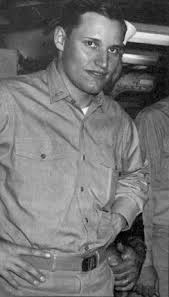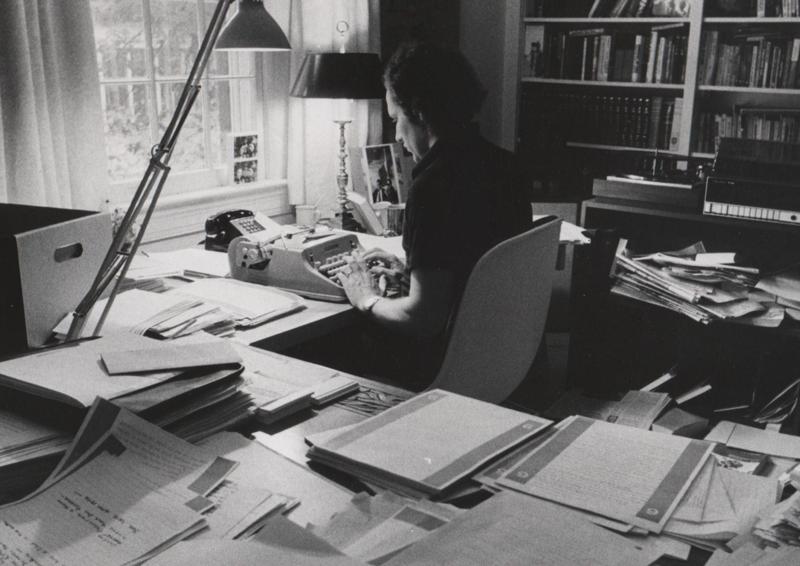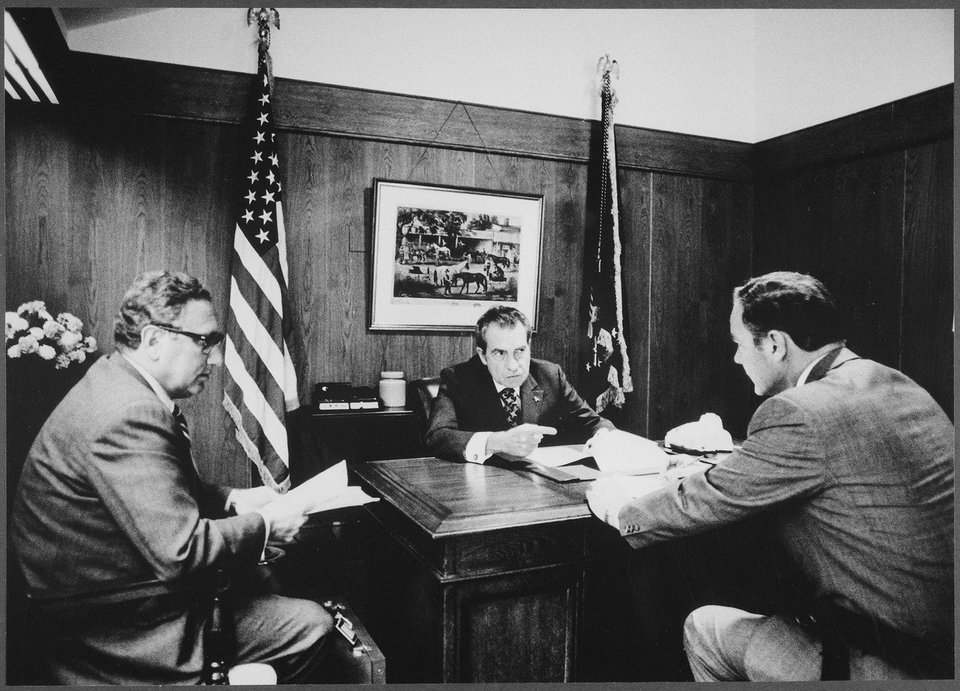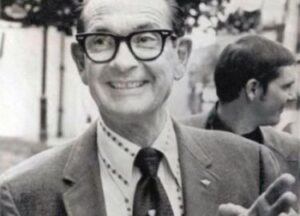Robert Upshur Woodward (born March 26, 1943) is an American investigative journalist. He has worked for The Washington Post since 1971 as a reporter and is now an associate editor there.
 Bob Woodward enrolled in Yale with a Naval Reserve Officers Training Corp scholarship, received his B.A. degree in 1965, then spent five years in the Navy. He served aboard the USS Wright, as one of two officers assigned to move or handle nuclear launch codes the ship carried in its capacity as a National Emergency Command Post Afloat. Woodward was discharged a Naval lieutenant in 1970.
Bob Woodward enrolled in Yale with a Naval Reserve Officers Training Corp scholarship, received his B.A. degree in 1965, then spent five years in the Navy. He served aboard the USS Wright, as one of two officers assigned to move or handle nuclear launch codes the ship carried in its capacity as a National Emergency Command Post Afloat. Woodward was discharged a Naval lieutenant in 1970.
Through a FOIA request, Medic has obtained a summary of Bob Woodward’s Navy record.
Admitted to Harvard Law School, Woodward instead applied–with no experience– for a job as a reporter at The Washington Post. He was turned down. After a year at a weekly newspaper in the Washington, D.C., the Post hired Woodward as reporter in 1971.
On year later, Woodward teamed up with Post reporter Carl Bernstein; they did much of the original reporting on the Watergate scandal. These scandals led to numerous government investigations and the eventual resignation of Richard Nixon. Woodward continued to work for The Washington Post after Watergate. He has written 18 books on American politics, 13 of which topped best-seller lists and has been the recipient of nearly every major American journalism award for his reporting on a wide range of subjects.
Woodward is not without his critics:
Regarding Watergate, reporters Len Colodny and Robert Gettlin state that Woodward has lied to conceal his early ties to General Alexander Haig when Woodward worked in the Nixon White House. In 1969 and 1970, Navy Lt. Bob Woodward manned the Pentagon’s secret communications room, which transmitted messages around the world, including to Henry Kissinger and President Nixon. Woodward often delivered messages from the worlds top leaders to Gen. Alexander Haig, Kissinger’s deputy at the National Security Council. Haig was the key source for Woodward on his most important Watergate story, that there were “deliberate erasures” on a critical Nixon White House tape.
Stylistically, Nicholas von Hoffman has remarked that “arrestingly irrelevant detail is [often] used”, while Michael Massing believes Woodward’s books are “filled with long, at times tedious passages with no evident direction.”
Joan Didion wrote in a 1996 essay in The New York Review of Books that “Woodward is a widely trusted reporter, even an American icon”, but he assembles reams of often irrelevant detail, fails to draw conclusions, and make judgments. “Measurable cerebral activity is virtually absent” from his books after Watergate from 1979 to 1996.”
Didion also stated the books are notable for “a scrupulous passivity, an  agreement to cover the story not as it is occurring but as it is presented, which is to say as it is manufactured.” She ridiculed “fairness” as “a familiar newsroom piety, the excuse in practice for a good deal of autopilot reporting and lazy thinking.” All this focus on what people said and thought—their “decent intentions”—circumscribes “possible discussion or speculation”, resulting in what she called “political pornography”.
agreement to cover the story not as it is occurring but as it is presented, which is to say as it is manufactured.” She ridiculed “fairness” as “a familiar newsroom piety, the excuse in practice for a good deal of autopilot reporting and lazy thinking.” All this focus on what people said and thought—their “decent intentions”—circumscribes “possible discussion or speculation”, resulting in what she called “political pornography”.
Other’s have accused Woodward of abandoning critical inquiry to maintain his access to high-profile political actors. Anthony Lewis called the style “a trade in which the great grant access in return for glory.” Christopher Hitchens accused Woodward of acting as “stenographer to the rich and powerful.”
Regarding the Valarie Plame scandal, Woodward has been accused by NYU professor Jay Rosen for not telling the truth about his role in the affair, which involved withholding special knowledge about the case.
Woodward was accused of fabricating a deathbed interview with CIA Director William Casey, as described in his book Veil. Critics say (given Casey’s limited speech ability) the interview simply could not have taken place as written in the book.
Woodward believed the Bush administration’s claims of Iraqi weapons of mass destruction prior to the Gulf war. He subsequently expressed regret for not being more critical of the (false) evidence presented by General Colin Powell.
 Reporters Len Colodny and Robert Gettlin state that Woodward has lied to conceal his early ties to General Alexander Haig when Woodward worked in the Nixon White House. In 1969 and 1970, Navy Lt. Bob Woodward manned the Pentagon’s secret communications room, which transmitted messages around the world, including to Henry Kissinger and President Nixon. Woodward often delivered messages from the worlds top leaders to Gen. Alexander Haig, Kissinger’s deputy at the National Security Council. Haig was the key source for Woodward on his most important Watergate story, that there were “deliberate erasures” on a critical Nixon White House tape.
Reporters Len Colodny and Robert Gettlin state that Woodward has lied to conceal his early ties to General Alexander Haig when Woodward worked in the Nixon White House. In 1969 and 1970, Navy Lt. Bob Woodward manned the Pentagon’s secret communications room, which transmitted messages around the world, including to Henry Kissinger and President Nixon. Woodward often delivered messages from the worlds top leaders to Gen. Alexander Haig, Kissinger’s deputy at the National Security Council. Haig was the key source for Woodward on his most important Watergate story, that there were “deliberate erasures” on a critical Nixon White House tape.
Despite these criticisms and challenges, Woodward has been praised as an authoritative and balanced journalist. The New York Times Book Review said in 2004 that “No reporter has more talent for getting Washington’s inside story and telling it cogently.”
________________________
Source: wikipedia
The Colodny Collection at Texas A&M University (the largest private collection of Watergate and Nixon related materials)

Bob Woodward
Robert Upshur Woodward (born March 26, 1943) is an American investigative journalist. He has worked for The Washington Post since 1971 as a reporter and is now an associate editor there.
Through a FOIA request, Medic has obtained a summary of Bob Woodward’s Navy record.
Admitted to Harvard Law School, Woodward instead applied–with no experience– for a job as a reporter at The Washington Post. He was turned down. After a year at a weekly newspaper in the Washington, D.C., the Post hired Woodward as reporter in 1971.
On year later, Woodward teamed up with Post reporter Carl Bernstein; they did much of the original reporting on the Watergate scandal. These scandals led to numerous government investigations and the eventual resignation of Richard Nixon. Woodward continued to work for The Washington Post after Watergate. He has written 18 books on American politics, 13 of which topped best-seller lists and has been the recipient of nearly every major American journalism award for his reporting on a wide range of subjects.
Woodward is not without his critics:
Regarding Watergate, reporters Len Colodny and Robert Gettlin state that Woodward has lied to conceal his early ties to General Alexander Haig when Woodward worked in the Nixon White House. In 1969 and 1970, Navy Lt. Bob Woodward manned the Pentagon’s secret communications room, which transmitted messages around the world, including to Henry Kissinger and President Nixon. Woodward often delivered messages from the worlds top leaders to Gen. Alexander Haig, Kissinger’s deputy at the National Security Council. Haig was the key source for Woodward on his most important Watergate story, that there were “deliberate erasures” on a critical Nixon White House tape.
Stylistically, Nicholas von Hoffman has remarked that “arrestingly irrelevant detail is [often] used”, while Michael Massing believes Woodward’s books are “filled with long, at times tedious passages with no evident direction.”
Joan Didion wrote in a 1996 essay in The New York Review of Books that “Woodward is a widely trusted reporter, even an American icon”, but he assembles reams of often irrelevant detail, fails to draw conclusions, and make judgments. “Measurable cerebral activity is virtually absent” from his books after Watergate from 1979 to 1996.”
Didion also stated the books are notable for “a scrupulous passivity, an agreement to cover the story not as it is occurring but as it is presented, which is to say as it is manufactured.” She ridiculed “fairness” as “a familiar newsroom piety, the excuse in practice for a good deal of autopilot reporting and lazy thinking.” All this focus on what people said and thought—their “decent intentions”—circumscribes “possible discussion or speculation”, resulting in what she called “political pornography”.
agreement to cover the story not as it is occurring but as it is presented, which is to say as it is manufactured.” She ridiculed “fairness” as “a familiar newsroom piety, the excuse in practice for a good deal of autopilot reporting and lazy thinking.” All this focus on what people said and thought—their “decent intentions”—circumscribes “possible discussion or speculation”, resulting in what she called “political pornography”.
Other’s have accused Woodward of abandoning critical inquiry to maintain his access to high-profile political actors. Anthony Lewis called the style “a trade in which the great grant access in return for glory.” Christopher Hitchens accused Woodward of acting as “stenographer to the rich and powerful.”
Regarding the Valarie Plame scandal, Woodward has been accused by NYU professor Jay Rosen for not telling the truth about his role in the affair, which involved withholding special knowledge about the case.
Woodward was accused of fabricating a deathbed interview with CIA Director William Casey, as described in his book Veil. Critics say (given Casey’s limited speech ability) the interview simply could not have taken place as written in the book.
Woodward believed the Bush administration’s claims of Iraqi weapons of mass destruction prior to the Gulf war. He subsequently expressed regret for not being more critical of the (false) evidence presented by General Colin Powell.
Despite these criticisms and challenges, Woodward has been praised as an authoritative and balanced journalist. The New York Times Book Review said in 2004 that “No reporter has more talent for getting Washington’s inside story and telling it cogently.”
________________________
Source: wikipedia
The Colodny Collection at Texas A&M University (the largest private collection of Watergate and Nixon related materials)